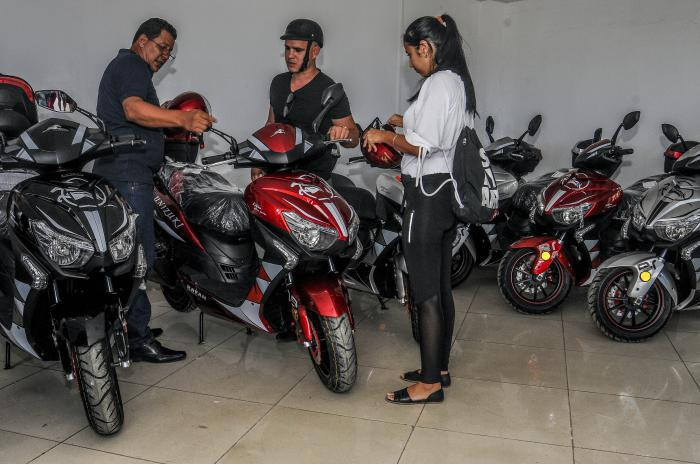
HAVANA, CUBA - While Cuba has long been romanticized for its vintage American cars and time-capsule streetscapes, a quiet revolution is brewing beneath the surface. The island nation, once heavily reliant on fossil fuels, is making significant strides towards embracing electric mobility, spearheaded by an ambitious project to install solar-powered high-speed charging stations for electric vehicles.
State-run newspaper Granma announced on April 9th that Cimex Group, a Cuban conglomerate, will lead a four-phase initiative to establish 40 "light-type" charging stations across the country. This large-scale project will run concurrently with a program aimed at developing solar power plants, with the initial phase targeting 1,200 megawatts (MW) of electricity production by December.
Each charging station will be equipped with 2,000 square meters of solar panels, capable of generating 24,000 kWh of electricity daily and storing 8,000 kWh. This infrastructure is projected to accommodate the charging needs of approximately 800 medium and large-sized vehicles per day. The move is a strategic response to the severe power shortages plaguing Cuba, largely due to the obsolescence of major thermal power plants and fuel scarcity. By reducing reliance on the national grid and lowering greenhouse gas emissions, the project offers a dual benefit for the country's energy future.
This development signifies a notable shift in Cuba's transportation landscape. For decades, the import of vehicles was heavily restricted following the US embargo in 1962. However, in 2013, Cuba began to ease these restrictions, gradually allowing the import of cars, trucks, and motorcycles after more than half a century. This gradual opening has paved the way for the introduction of electric vehicles.
However, the ambitious charging infrastructure plan has sparked controversy by notably excluding electric motorcycles, the most prevalent form of electric transport in Cuba. Since their legalization in 2013 as a measure to combat fuel shortages and environmental pollution, the number of electric motorcycles has surged dramatically across the island.
In urban centers like Havana, electric scooters are a common sight, and joint ventures like "Caribbean Electric Automobiles" (Vedca), a partnership between Chinese investors and a Cuban state-owned company, are producing electric scooters, bicycles, and mini-tricycles domestically. According to the National Revolutionary Police Force (DGPNR), over 300,000 electric motorcycles and scooters are currently in circulation in Cuba – six times the approximately 50,000 electric cars officially registered with the Ministry of Transportation.
Cimex has cited safety concerns as the primary reason for excluding electric motorcycles from the charging infrastructure project, pointing to the fact that they are currently a major cause of fires in Cuba. While these concerns are valid, the exclusion of such a widely used mode of transport is likely to draw criticism from the Cuban populace who rely on them for daily commuting.
While the Cuban government's commitment to electric vehicle charging and solar energy development is commendable, the omission of dedicated infrastructure for electric motorcycles highlights a potential oversight. As electric motorcycles have become an integral part of the daily lives of many Cubans, addressing their charging needs will be crucial for a truly comprehensive and equitable transition to sustainable transportation.
[Copyright (c) Global Economic Times. All Rights Reserved.]



























